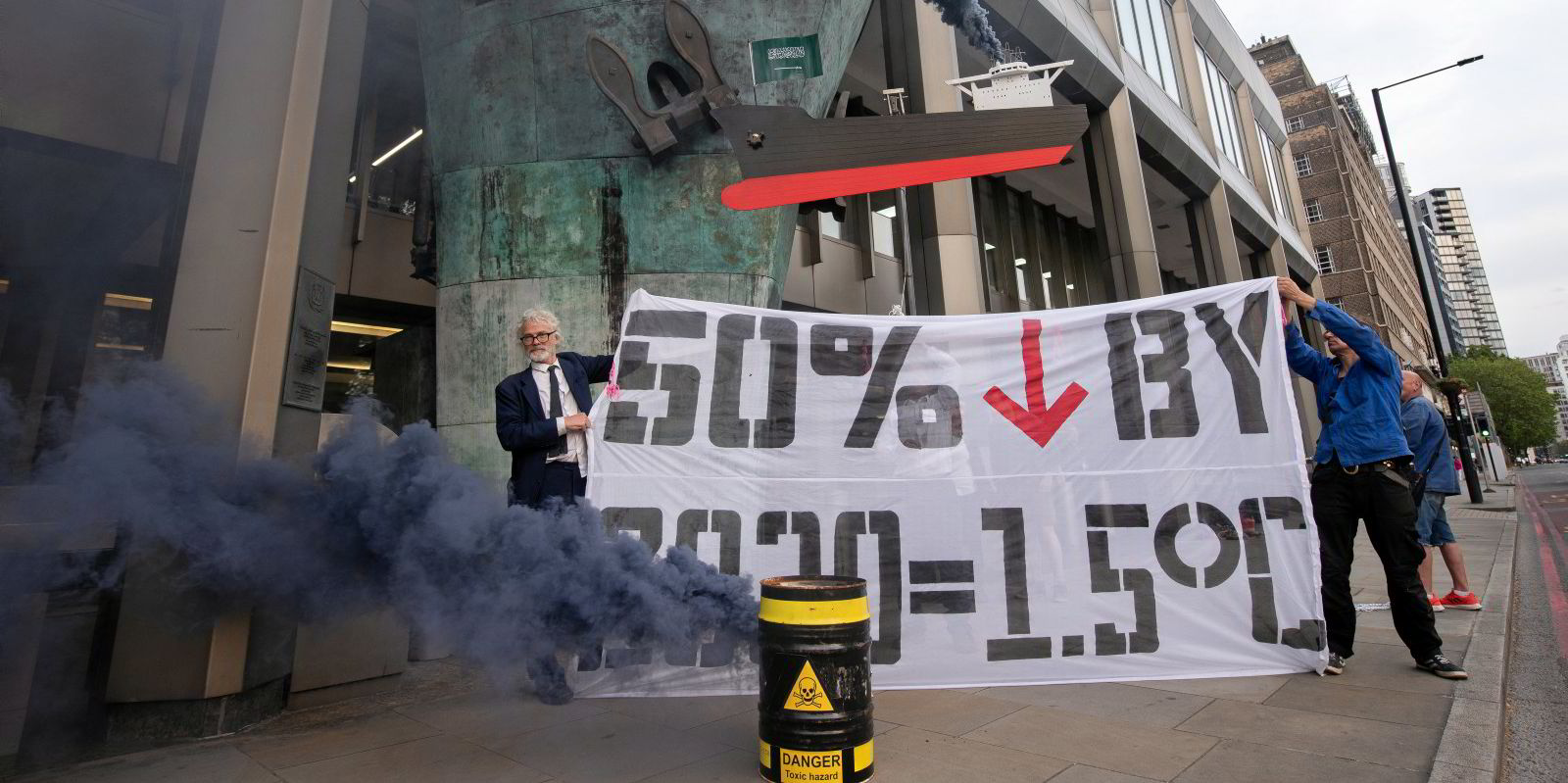A draft agreement on raising the International Maritime Organization’s future decarbonisation targets has not fully committed the regulator to achieve zero greenhouse gas emissions (GHG) by 2050.
Full decarbonisation by that date is viewed as necessary to keep shipping in line with the goals of the Paris Agreement on climate change.
The document, which will be put forward for negotiation and then approval by governments at the IMO next week, proposes raising the regulator’s ambition to achieve net-zero greenhouse gas emissions “as soon as possible or by 2050 at the latest”.
A target of zero greenhouse gas emissions, called for by some countries, has been dropped.
Governments have also been given some room to build flexibility into the dates.
The option remains on the table that the target could be qualified by the phrase “and/or by the mid-century and/or by around 2050 depending upon national circumstances”.
There is also the condition that the uptake of zero or near-zero greenhouse gas emission technologies, fuels and/or energy sources are to represent [at least] 5%, [striving for 10%,] of the energy used by international shipping by 2030.
The brackets represent terms that are subject to change.
But, the mid-term targets will be viewed as difficult to achieve by many in the shipping industry given the current low availability of low-carbon fuels and decarbonisation technology.
The draft document proposes the interim target “to reduce the total annual GHG [greenhouse gas] emissions from international shipping by at least 20% [striving for 25%] in 2030, compared to 2008”.
An additional target is to “reduce the total annual GHG emissions from international shipping by at least 70% [striving for 75%] by 2040, compared to 2008”.
The draft agreement fails to clarify the mid-term economic carbon pricing measures the IMO will take forward.
These are viewed as critical to incentivise the transition to zero-emission fuels and ships and aid developing economies and those affected by climate change.
As earlier reported by TradeWinds, China, Brazil and Argentina and others came out strongly against the establishment of a levy-based system to raise a decarbonisation war chest.
There are currently six different proposals for market-based measures on the table which are mostly levy based but also include cap and trade schemes.
Environmentalists say delays in selecting a suitable market-based measure could hinder the shipping industry’s chances of achieving the IMO’s decarbonisation targets.





